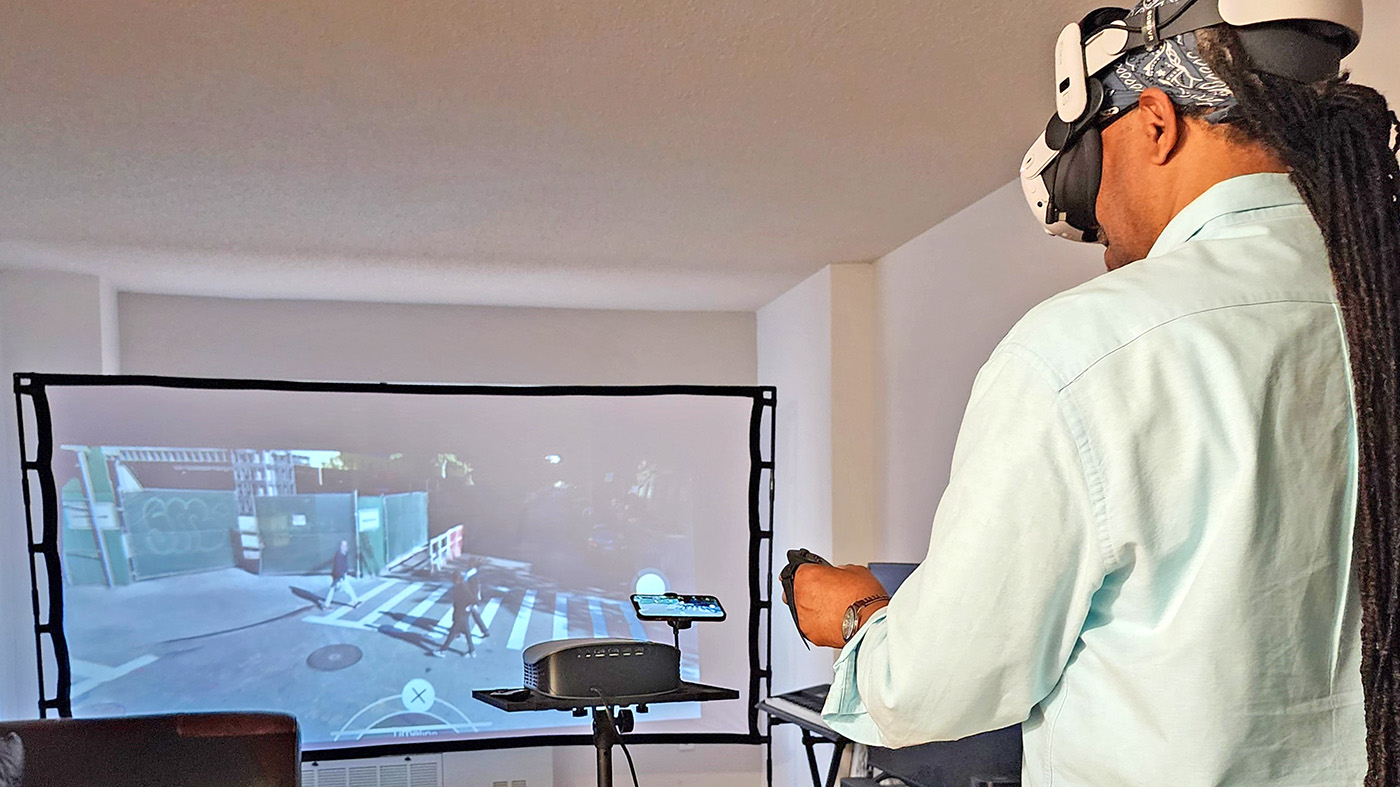Bridging the Gap: How Immersive Technology is Transforming Veteran Support
In recent years, the landscape of veteran support has evolved dramatically, thanks in large part to advancements in technology. Among these innovations, immersive technology—encompassing virtual reality (VR), augmented reality (AR), and mixed reality (MR)—has emerged as a powerful tool for enhancing the lives of veterans. A recent initiative highlighted by the Department of Veterans Affairs showcases how one veteran is sharing these transformative technologies with fellow service members, creating new avenues for healing, connection, and empowerment.
The Power of Immersive Technology
Immersive technology refers to digital environments that engage users in a way that feels real and interactive. For veterans, these technologies can provide therapeutic benefits, offering a safe space to confront and process experiences that may be difficult to address in traditional settings. Virtual reality, for instance, can simulate environments that help veterans manage PTSD, anxiety, and other mental health challenges by allowing them to confront their fears in a controlled manner.
A Veteran’s Journey
The article features a veteran who has taken it upon himself to introduce immersive technology to his peers. His journey began with his own struggles after returning from service, where he found it challenging to reintegrate into civilian life. Through his exploration of VR and AR, he discovered not only a means of coping with his own experiences but also a passion for helping others navigate similar challenges.
This veteran’s initiative is rooted in the belief that technology can foster community and understanding among veterans. By sharing his knowledge and resources, he aims to create a supportive environment where veterans can connect, share their stories, and heal together.
Workshops and Community Engagement
To facilitate this mission, the veteran has organized workshops that provide hands-on experiences with immersive technology. These sessions allow participants to engage with VR headsets and AR applications, guiding them through various scenarios designed to promote relaxation, mindfulness, and emotional processing. The workshops also serve as a platform for veterans to share their experiences, fostering a sense of camaraderie and mutual support.
The community engagement aspect of these workshops is particularly significant. Many veterans face isolation after returning home, and the opportunity to connect with others who understand their experiences can be invaluable. By creating a space where veterans can come together, the initiative not only promotes the use of technology but also strengthens the bonds of brotherhood and sisterhood that are so vital to the veteran experience.
Therapeutic Applications
The therapeutic applications of immersive technology are vast and varied. For instance, VR can be used to recreate specific environments that veterans may find triggering, allowing them to practice coping strategies in a safe setting. This exposure therapy can be instrumental in helping veterans manage symptoms of PTSD and anxiety.
Additionally, AR applications can provide real-time support and resources, such as guided meditations or stress-relief exercises, that veterans can access whenever they need. These tools empower veterans to take control of their mental health and well-being, providing them with resources that are easily accessible and tailored to their needs.
Looking Ahead
As the initiative continues to grow, the potential for immersive technology in veteran support is becoming increasingly clear. The veteran leading this charge is not only transforming his own life but also paving the way for others to benefit from these advancements. By harnessing the power of technology, he is helping to create a future where veterans can find healing, connection, and purpose.
The Department of Veterans Affairs recognizes the importance of such initiatives and is committed to supporting innovative approaches to veteran care. As more veterans become aware of the benefits of immersive technology, it is likely that we will see a broader adoption of these tools across various veteran support programs.
Conclusion
The integration of immersive technology into veteran support represents a significant step forward in addressing the unique challenges faced by those who have served. Through the efforts of dedicated individuals like the veteran featured in the article, the potential for healing and connection is being realized. As we continue to explore the possibilities of technology in enhancing the lives of veterans, it is essential to foster community, understanding, and support—ensuring that no veteran has to navigate their journey alone.


